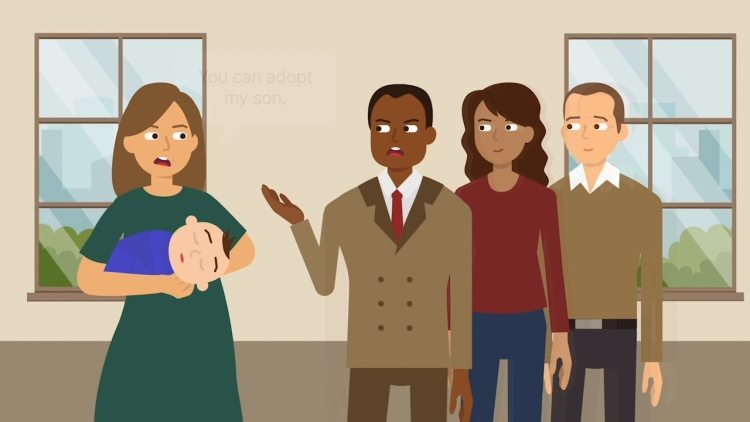In re Doe
Illinois Supreme Court
638 N.E.2d 181 (Ill. 1994)
- Written by Serena Lipski, JD
Facts
Daniella and Otakar, an unmarried couple, had a baby named Richard. During the first eight months of pregnancy, Otakar supported Daniella. Otakar then went to visit his native country, and while he was gone, Daniella learned Otakar was having a relationship with another woman. Daniella moved out of the couple’s apartment and arranged for the adoption of Richard by the Doe family. Daniella gave birth to Richard at a different hospital than the one she and Otakar had planned, and when Otakar repeatedly tried to find his baby, Daniella told him that the baby had died at birth. Daniella told the adoptive couple that she knew the identity of Richard’s father but would not share his name. The adoptive couple made no effort to locate Richard’s biological father. Otakar discovered the adoption 57 days after Richard’s birth and immediately filed an appearance to contest Richard’s adoption. The trial court upheld the adoption, finding that Otakar was unfit because he failed to demonstrate a reasonable degree of interest, concern, or responsibility during Richard’s first 30 days of life and therefore his consent was not required. Otakar appealed. The appellate court affirmed the trial court’s judgment, reasoning that Richard was not property and did not belong to anyone, neither the biological parents nor the adoptive parents, and therefore only Richard’s best interests should be considered. Otakar appealed. At the time of the Illinois Supreme Court’s decision, Richard had lived with the Does for three years.
Rule of Law
Issue
Holding and Reasoning (Heiple, J.)
What to do next…
Here's why 907,000 law students have relied on our case briefs:
- Written by law professors and practitioners, not other law students. 47,100 briefs, keyed to 996 casebooks. Top-notch customer support.
- The right amount of information, includes the facts, issues, rule of law, holding and reasoning, and any concurrences and dissents.
- Access in your classes, works on your mobile and tablet. Massive library of related video lessons and high quality multiple-choice questions.
- Easy to use, uniform format for every case brief. Written in plain English, not in legalese. Our briefs summarize and simplify; they don’t just repeat the court’s language.





